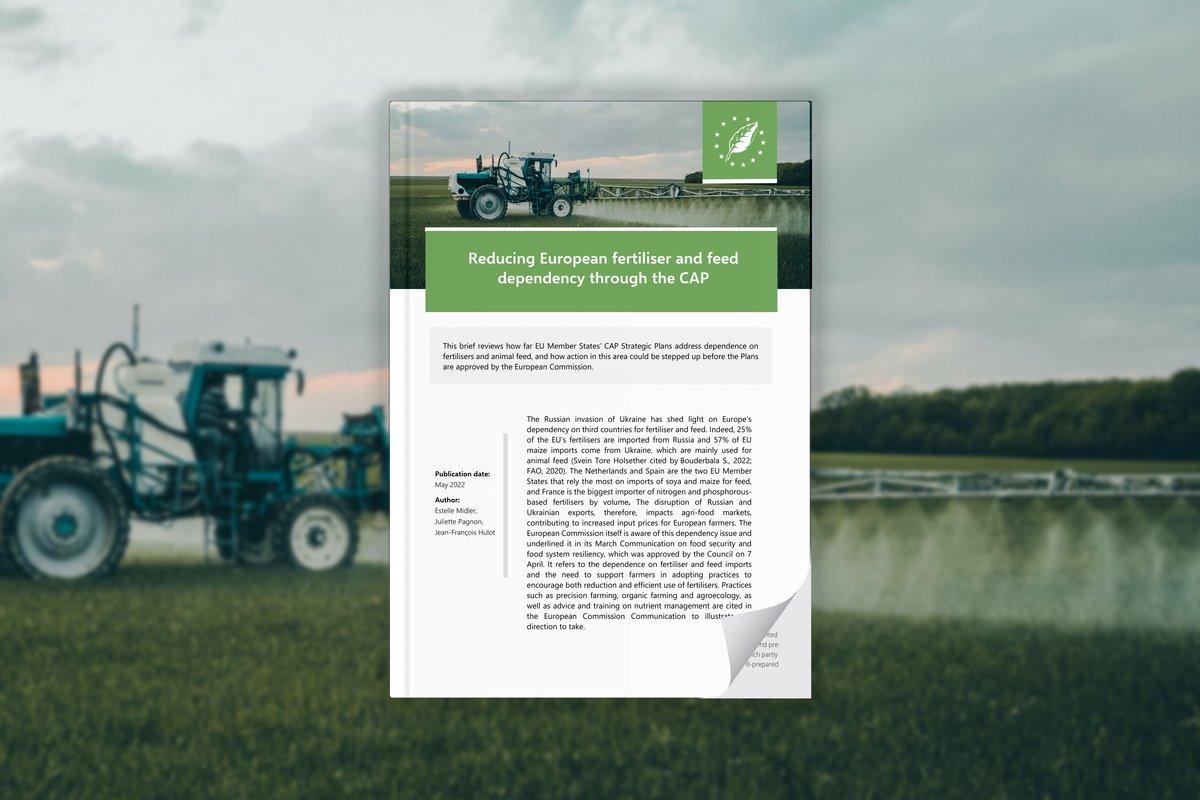AUTHORS: Estelle Midler – Juliette Pagnon – Jean-François Hulot
This brief reviews how far EU Member States’ CAP Strategic Plans address dependence on fertilisers and animal feed, and how action in this area could be stepped up before the Plans are approved by the European Commission.
The Russian invasion of Ukraine has shed light on Europe’s dependency on third countries for fertiliser and feed. To give some context, 25% of the EU’s fertilisers are imported from Russia and 57% of EU maize imports come from Ukraine, those imports being mainly used for animal feed. The European Commission itself recognised this dependency issue in its March Communication on food security and food system resiliency. Accordingly, the Commission asked Member States to review their CAP Strategic Plans (CSP) to support farmers in adopting practices to encourage both reduction and efficient use of fertilisers.
This briefing reviews the measures that Member States could use in their CAP Plans to reduce their fertiliser and feed dependency, and the extent to which Member States have done so in their draft Plans, which they are currently reviewing. The briefing also provides a detailed analysis of the content of a selection of Member States’ CSP on this topic: France, Ireland, the Netherlands and Spain. The analysis draws on information from the Commission’s summary of CAP plans to the Council and their observation letters to Member States, along with information from the CAP Strategic Plans for the above Member States.
Overall, the results of the analysis carried out in this briefing in four Member States (France, Ireland, the Netherlands and Spain) are consistent with the observations made by the European Commission. All four Member States plan to implement interventions related to reduced fertiliser use, nutrient management, protein crops, grassland maintenance and extensive livestock systems. However, the contribution to reducing fertiliser and feed dependency remains unclear. Indeed, many of these interventions support a broad range of practices amongst which farmers can choose, some of them not being directly linked to fertiliser use and feed dependency reductions. Where targeted interventions exist, their budgets and target areas are often too small to induce substantial changes in farming systems. Finally, these measures are likely to be counteracted by other interventions supporting unsustainable farming systems and endowed with much larger budgets (e.g. coupled income support for livestock).
The briefing concludes by providing a list of recommendations to Member States:
- Improving the budget allocated to support for organic farming to align the CSPs with the 25% target of the Farm to Fork.
- Reducing coupled support for livestock and make it conditional to maximum livestock loads and ceilings defined in such a way that the support favours low input livestock systems.
- Supporting nitrogen-fixing crops to reduce fertiliser dependency through conditionality (especially the crop rotation GAEC), eco-schemes and agri-environmental and climate commitments.
- Better targeting interventions aiming at reducing fertiliser use and improving nutrient management, assess their contribution to reaching this objective and allocate a substantial budget to them, in order to reach the Farm to Fork target on this topic (-20% by 2030).
- Planning interventions aiming at reducing overall livestock numbers, together with measures beyond the CAP aiming at shifting towards more plant-based diets.
- Increasing the effort to improve soil quality, as its continuous reduction increases dependency to synthetic fertilisers.


